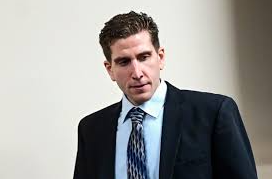
The highly anticipated memoir blurs the line between personal revelations and overexposure, leaving even royal enthusiasts hesitant.
Prince Harry’s memoir, Spare, is undoubtedly the most talked-about book release of 2023, promising unprecedented insight into royal life. Yet, for someone who thrives on royal intrigue, the prospect of reading it feels more daunting than exciting.
Revelations from the book’s leaked excerpts have dominated headlines: Harry pleading with King Charles not to marry Camilla, a heated altercation with Prince William that led to a broken necklace and a dog bowl incident, and Meghan accusing Kate of having “baby brain.” For a casual royal watcher, these deeply personal stories go beyond the light drama of The Crown or a juicy biography—they feel invasive.
The timing of Spare also raises eyebrows. Following Queen Elizabeth II’s passing in September, the release of such a candid book feels poorly timed, exacerbating the fractures within the royal family. The title alone, Spare, underscores themes of isolation and grievance, making it clear this isn’t a story of reconciliation.
It’s not just the content but the sheer volume of it. From their six-hour Netflix series to repeated interviews, Harry and Meghan’s narrative has become inescapable. Their portrayal as a couple consumed by bitterness has led many to question if their relentless criticism of the monarchy overshadows their initial goals of freedom and privacy.
The memoir continues this trend, revealing intimate family conflicts that most would prefer to keep private. While tales of royal disputes and dysfunction are compelling, Spare ventures into territory that feels uncomfortably voyeuristic. It’s a far cry from the distant glamour and historical intrigue that draw many to the royal story.
Some may draw parallels between Spare and Princess Diana’s Diana: Her True Story, but the context is vastly different. Diana, still within the royal system, had limited avenues to share her perspective. Harry, on the other hand, has had ample opportunity to voice his grievances.
Royal stories often function as escapism, blending historical fascination, gossip, and a touch of fantasy. But Spare veers into the realm of a family therapy session, stripping away the mystique that makes the royals both fascinating and relatable.
While the royal family will endure as symbols on coins and stamps, Spare pushes boundaries, leaving readers unsure if they’ve gained insight or simply invaded private pain. Perhaps this memoir is less a revelation and more a step too far into personal space.



















Comments
Hello world!
Pic of the week: Sunset at margate beach
The first day’s journey was through the pink fields
The first day’s journey was through the pink fields
The first day’s journey was through the pink fields